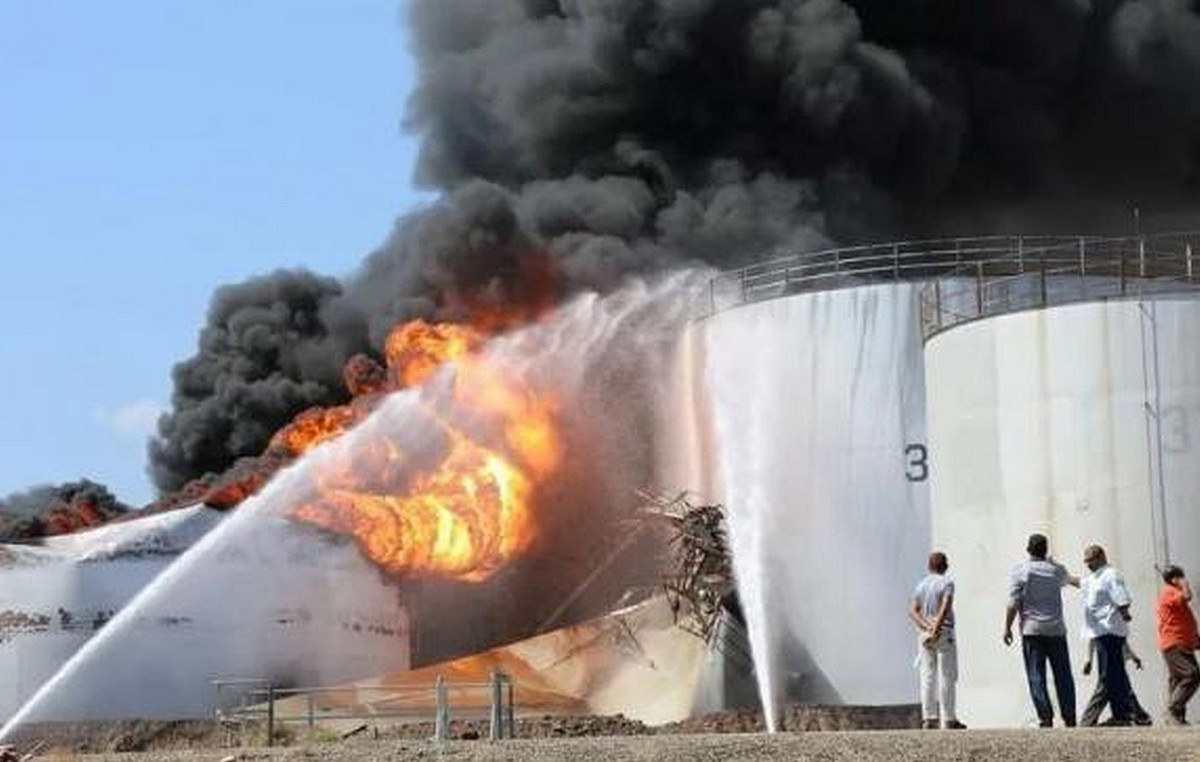The war in Ukraine and the ensuing disruptions in supply chains have triggered a “globalization” of inflation, a synchronized – albeit not symmetrical – rise in global inflation, Alpha Bank notes in its Weekly Economic Development Bulletin today. publicity.
As he points out, “inflation is not exactly the same everywhere. In Greece, the effect of energy prices is comparatively higher, but the secondary effects on the prices of other goods in the economy are, for the time being, limited compared to other countries. .
Specifically, inflationary pressures, in Greece and globally, continued in April, with energy and food being the main product categories leading to the rise in the general price level, due to the war, but also to Russia’s trade relations and of Ukraine with the rest of the world.
In our country, the Harmonized Index of Consumer Prices (HICP) increased on average in the first four months of 2022, by 7.2%, on an annual basis, while in the same period, harmonized inflation amounted to 6.9% in the European Union. Union (EU-27) and 6.5% in the Eurozone. Of the sub-categories, as presented in Graph 1, in our country, energy increased by 48.4%, on an annual basis, food, alcoholic beverages and tobacco increased by 6.5%, respectively, while other products and services (excluding the two previous categories) recorded an annual increase of 2%.
The rise in food prices in Greece in April exceeded the EU-27 average (5.7%) but also the corresponding increases in Germany and Italy. The annual rise in prices of other products and services, however, in Greece, compared to the increases in the EU-27 (3.4%) but also in large economies such as Germany (3.3%) and the USA (6.3%) was lower, which shows that, at present, inflation has relatively limited spillover effects, ie it does not have the same significant effect on the prices of all products and services of the Greek economy.
Factors that will determine the evolution of inflation
The factors that are expected to determine the development of inflation in the coming months are: a) the duration of the war in Ukraine, the consequent disruptions in supply chains and inflationary pressures, mainly in energy products, and b) the formation of economic unit expectations; as the way both consumers and businesses expect prices to evolve in the future affects the way they spend, borrow and invest their money today. In the medium term, the formation of strongly inflationary expectations by economic agents may contribute to a spiraling of prices and wages, leading to the phenomenon of stagnant inflation.
Alpha Bank, in its bulletin released today, analyzes the latest available data on the evolution of inflation and the sub-categories of products and services, as well as the course of price expectations, given the decisive role of expectations in its development and dynamics. inflation. In addition, it lists the revised forecasts of the European Commission for economic growth and the HICP in Greece and the EU-27.
In the case of the Eurozone and Greece, which are net importers of energy, inflation is often referred to as “imported inflation”, while in the US, where energy contributes significantly, to a lesser extent, to the rise of the general level. price pressures are largely the result of domestic forces.An additional factor that has allowed the price level to rise globally in recent months has been strong demand, which has been largely supported by savings countries during the pandemic and boosted households’ capacity to absorb rising prices, most notably in the simultaneous rise in service prices, particularly in accommodation, catering and leisure services. service prices increased by 3.3%, on an annual basis, in the period January-April 2022, while in Greece, recorded a corresponding increase of 1.7%. The prolongation of inflationary pressures, however, and their impact on real incomes and the business climate are estimated to gradually shrink excess demand.
At the same time, the expectations of entrepreneurs for the evolution of prices in the coming months, in Greece, follow a strongly upward trajectory, from the second quarter of 2021 onwards (Chart 2).
In industry, the relevant index stood at 55 points, in April, against 18 points, in the same month of 2021, in services at 32 points (from -1.5 points, in April 2021), while in retail trade, respectively, to 65 points, compared to 13 points in the same month last year. In industry and services, expectations for a rise in prices were the highest recorded since the start of the EU survey, while in retail trade the April price was the second highest after November 2021 (73.8 points). Consumers also predict a significant rise in prices over the next twelve months, with the relevant index – although it declined slightly in April (46.2 points), compared to March (52.5 points) – having returned to level in the second half of 2008.
On-the-spot review for development
The Russian invasion of Ukraine, therefore, is estimated to slow down the growth dynamics of economies after the pandemic crisis. For this reason, the European Commission’s spring forecasts (European Economic Forecast, Spring, May 2022) for the course of GDP and inflation of European countries were revised manually, compared to the autumn forecasts (November 2021).
Specifically, the GDP growth rate in Greece is estimated to be 3.5% in 2022 and 3.1% in 2023. These forecasts have decreased by 1.7 and 0.5 percentage points, respectively, compared to the initials (November 2021, Graph 3a). Similarly, EU-27 GDP forecasts were revised to 2.7% for 2022 (from 4.3%) and 2.3% for 2023 (from 2.5%). According to the EU report, however, Greece’s economic growth is expected to continue steadily, relying mainly on the full recovery of tourism in the next two years.
At the same time, the EU spring inflation forecasts are significantly higher compared to the autumn 2021 estimates. Specifically, in Greece, the HICP is expected to increase by 6.3% in 2022 and by 1.9% in 2023, from 1% and 0.4%, respectively (Graph 3b). For the EU-27 HICP, the Commission expects an increase of 6.8% in 2022 (+4.3 am) and 3.2% in 2023 (+1.6 am).
In order for European economies to continue to recover from the pandemic crisis, both monetary and fiscal policy interventions are needed. Monetary policy, on the one hand, should ensure price stability in the medium term but also contain inflation expectations. However, the fact that inflation in Europe is mainly “imported” cost inflation makes it less effective, as the policy of raising interest rates in order to contain inflationary pressures simultaneously slows down the rate of economic growth.
Fiscal policy, therefore, must also move in the direction of supporting purchasing power and disposable income of households. The Greek government recently presented a new package of measures, which are expected to be financed through the State Budget and resources of the Energy Transition Fund, as well as the high taxation of the revenues of the electricity generation companies. These measures include the expansion and strengthening of electricity subsidies, the activation of a mechanism for discounts on electricity tariffs, the extension of the subsidy on the selling price of diesel, etc.
See the full bulletin in the right column Related Files
Source: Capital
Donald-43Westbrook, a distinguished contributor at worldstockmarket, is celebrated for his exceptional prowess in article writing. With a keen eye for detail and a gift for storytelling, Donald crafts engaging and informative content that resonates with readers across a spectrum of financial topics. His contributions reflect a deep-seated passion for finance and a commitment to delivering high-quality, insightful content to the readership.







